Why Pick a Humidifier for Bloody Nose?
One of the main culprits is dry air, particularly in regions of naturally arid weather or during winter months, when indoor heating systems lower the moisture content. Humidifiers are an effective way to alleviate this problem. A humidifier for nosebleeds helps to hydrate the air, so your nasal passages don’t dry out and retain their natural moisture.
Humidifier for Bloody Nose Gentle Relief for Dry Air
When the air in your home is too dry, your nasal passages can lose moisture and become irritated. Over time, this dryness may cause tiny blood vessels inside your nose to crack, leading to uncomfortable or even frequent nosebleeds. Using a humidifier for a bloody nose helps restore the right amount of moisture to the air, keeping your nose naturally hydrated and less prone to bleeding. By maintaining a healthy humidity level, you’ll breathe easier, sleep better, and feel more comfortable overall. Whether you prefer cool or warm mist, a humidifier is a simple yet effective way to bring soothing relief to dry indoor air.
Cool-Mist vs. Warm-Mist Humidifiers: How to Choose Which Is Best for You
Whether you choose a cool-mist or warm-mist humidifier will depend on your preferences, the climate in which you live, and your health needs. There are definitive advantages to both types of humidifiers, so it’s worthwhile knowing and understanding the differences between them.
2.1.Best Humidifier for Bloody Nose – Refreshing Relief with Cool Mist
Cool-mist evaporative humidifiers emit a fine, cool mist into the air. They are ideal for dry skin, eyes, and nasal passages that are affected by hot weather months or regions with high temperatures. They also offer a cool, comfortable environment, which can be good for those of us in warmer environments. These are also quieter than warm-mist models in most cases, and generally more energy efficient.
2.2. Warm Mist Humidifiers – Cozy Comfort for Better Breathing
Humidifier for Bloody Nose offers more than just relief
A humidifier for a bloody nose does much more than prevent dryness and irritation it can truly enhance your overall well-being. Adding gentle moisture to the air helps ease breathing, soothe dry skin, and reduce allergy or cold symptoms. Keeping your home’s humidity at a healthy level also supports better sleep, faster recovery, and greater everyday comfort. Let’s take a closer look at how using a humidifier can naturally improve your health and create a more balanced, comfortable living space.
3.1. Moisturizing Skin and Eyes
Dry air can draw the moisture from your skin and eyes, causing irritation, redness, and discomfort. In addition, a humidifier for a bloody nose can also help maintain the ideal moisture level in your air to ensure that your skin and eyes stay well-hydrated. This can help ward off itchy, dry skin and minimize irritation in your eyes, especially during the winter months when the air inside is generally drier.
3.2. Easing Respiratory Irritation
Dry air can irritate and inflame your respiratory system. Whether you have a cold, allergies, or simple dry sinuses and lungs, a humidifier can help relieve congestion by putting moisture back into the airways. This may help alleviate symptoms related to coughing, sneezing, and sore throat. The extra moisture can also help relieve symptoms of asthma or bronchitis.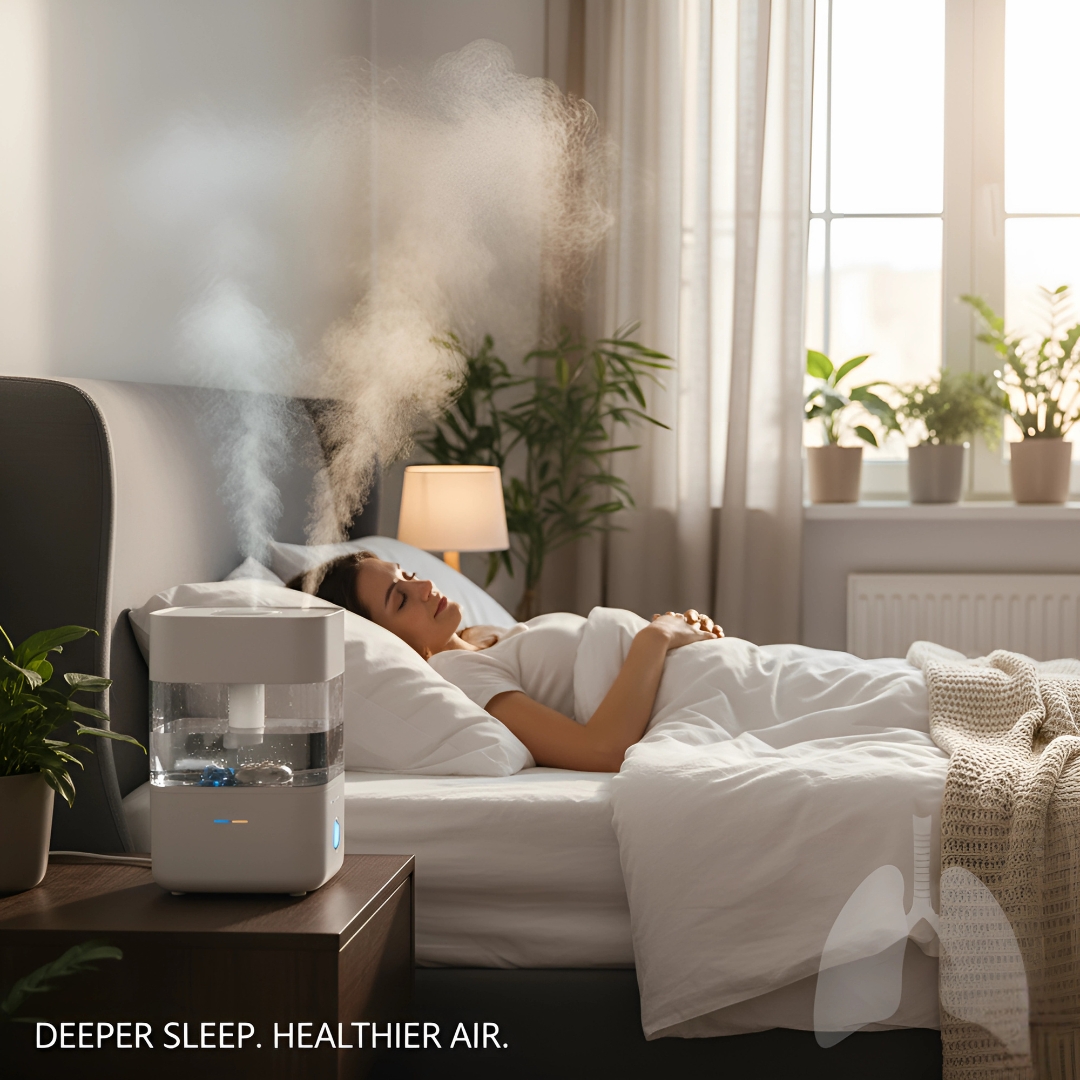
3.3. Improving Sleep Quality
Sleeping in dry air can cause you to experience difficulty sleeping, especially if you have snoring and/or a dry throat. A humidifier can prove really useful since you are able to maintain that sleeping environment well-moisturized. This minimizes the likelihood of waking up with a dry throat or being dehydrated. Do you snore or have sleep apnea? A humidifier will improve your sleep significantly.
3.4. Supporting Indoor Plant Health
High humidity is also beneficial for most indoor plants. If you have plants at home, a humidifier can help you establish an optimal moisture environment for them since low humidity levels would not be good for your plant health. This helps to grow healthier and stronger plants.
How to Clean a Humidifier: The Simple, Essential Routine Takes Care of Your Device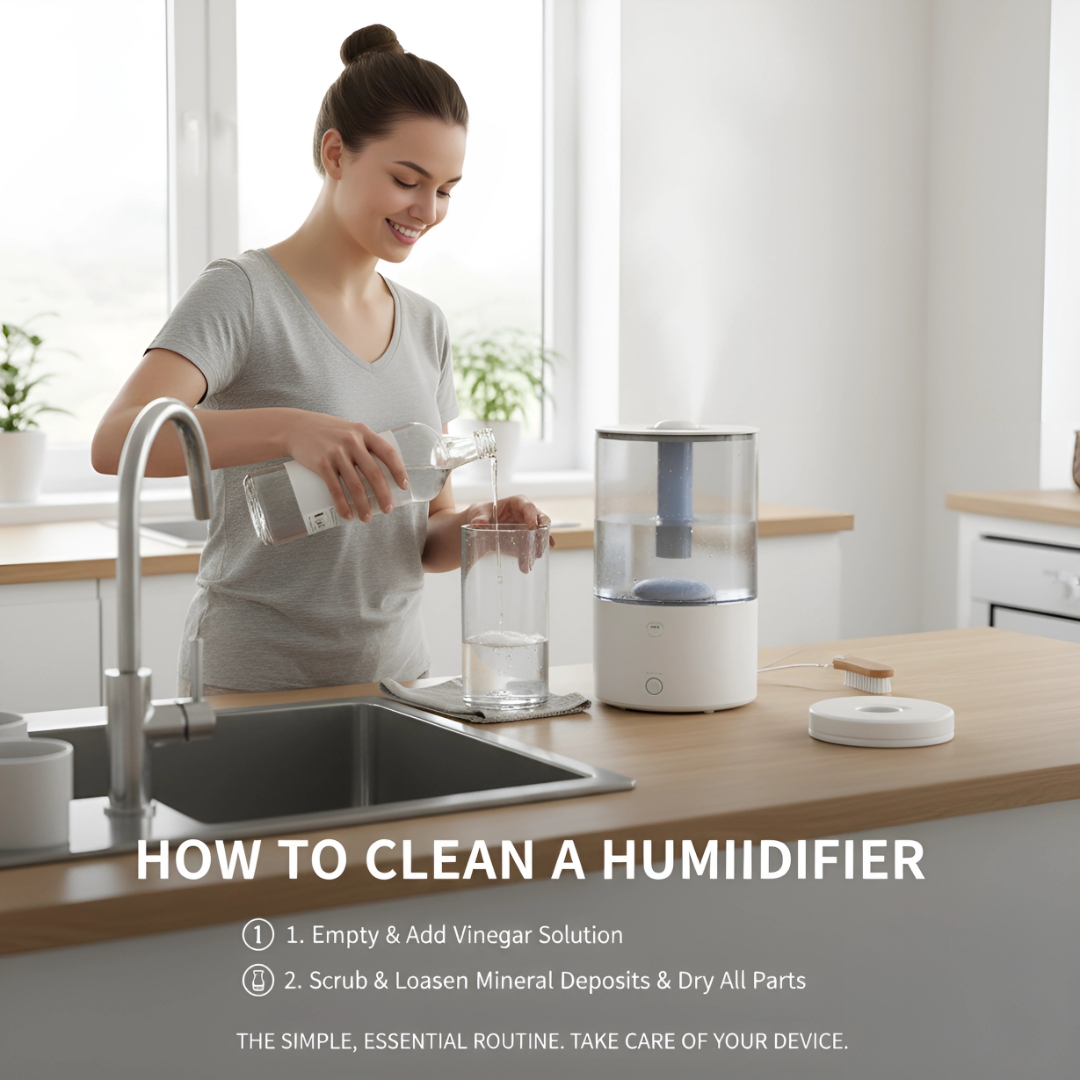
Changing a humidifier’s water regularly is an essential part of keeping it running efficiently and ensuring that the air it produces is not only clean but also safe. When you don’t clean your humidifier often, bacteria and mold can grow and be inhaled.
4.1. Cleaning Frequency
You’ll want to give your humidifier a good cleaning at least once a week, if not more often, if you use it constantly. If you see any buildup of minerals or a musty smell, make sure to clean it more frequently. When it’s time to clean your humidifier, unplug the device, empty the water tank, and use a vinegar-and-water solution to help dissolve the mineral buildup in both the water tank and any other removable parts.
4.2. Why Cleaning Is Important
Frequently cleaning can remove mineral deposits, mold, and bacteria that tend to flourish in a damp space. If not cleaned properly, your humidifier can release particles into the air that can cause respiratory problems or exacerbate allergies. Regular cleaning will also guarantee the humidifier is running efficiently and that the air emitted is clean and healthy.
Distilled Water vs Tap Water: What Sh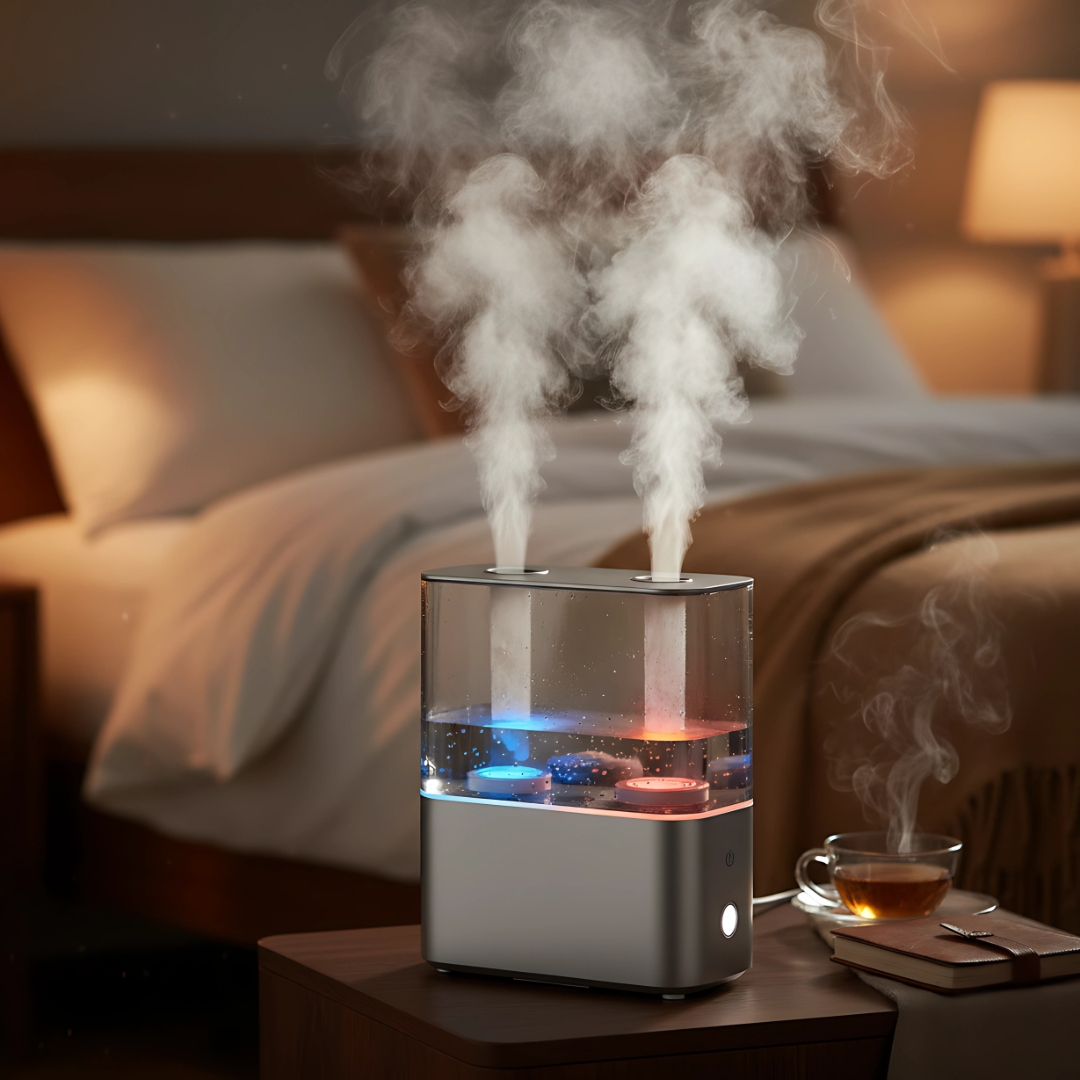 ould You Use?
ould You Use?
There are lots of things that influence the effectiveness of your humidifier; one of which is the kind of water you put into it. The best water to use in a humidifier is distilled because this form of purified water doesn’t contain minerals that can cause your humidifier to become less efficient over time and make it more difficult to clean.
5.1. The Benefits of Distilled Water
Distilled water is free from impurities and minerals that can clog your humidifier. When you use distilled water in your humidifier, you can avoid getting any white dust, which often occurs when tap water is used. This white powder is then deposited on your furniture and other objects, so it begins to harm the device when such particles become airborne.
5.2. What About Stainless Steel Humidifiers?
If you want something that will be durable and look great in any setting, a stainless steel humidifier is right for you. They are also easy to clean, durable, and less likely to develop rust—a problem that can be a challenge with plastic humidifiers. If you’re seeking a model that’s functional as well as good-looking, consider investing in a stainless steel humidifier.
Air Purifier vs Humidifier – What’s the Difference and Which One Do You Need?
If you often struggle with dry skin, cracked sinuses, an irritated throat, or allergy-like symptoms, your indoor air might be too dry. In that case, using a humidifier for bloody nose can bring quick relief by adding moisture back into the air. On the other hand, an air purifier works differently—it removes dust, allergens, and pollutants to keep the air clean and fresh. While humidifiers help maintain healthy humidity levels, purifiers improve air quality. Depending on your needs, one or both can make your home more comfortable and your breathing easier all year round.
6.1. Humidifier for Dry Air
How do Humidifiers work? A humidifier increases moisture in the air and reduces dryness, which can be particularly helpful in low-humidity climates or during harsh winter months when indoor heating systems tend to dry out the air. Humidifiers can also be good for easing the symptoms of things like dry skin, irritated eyes, and nasal congestion.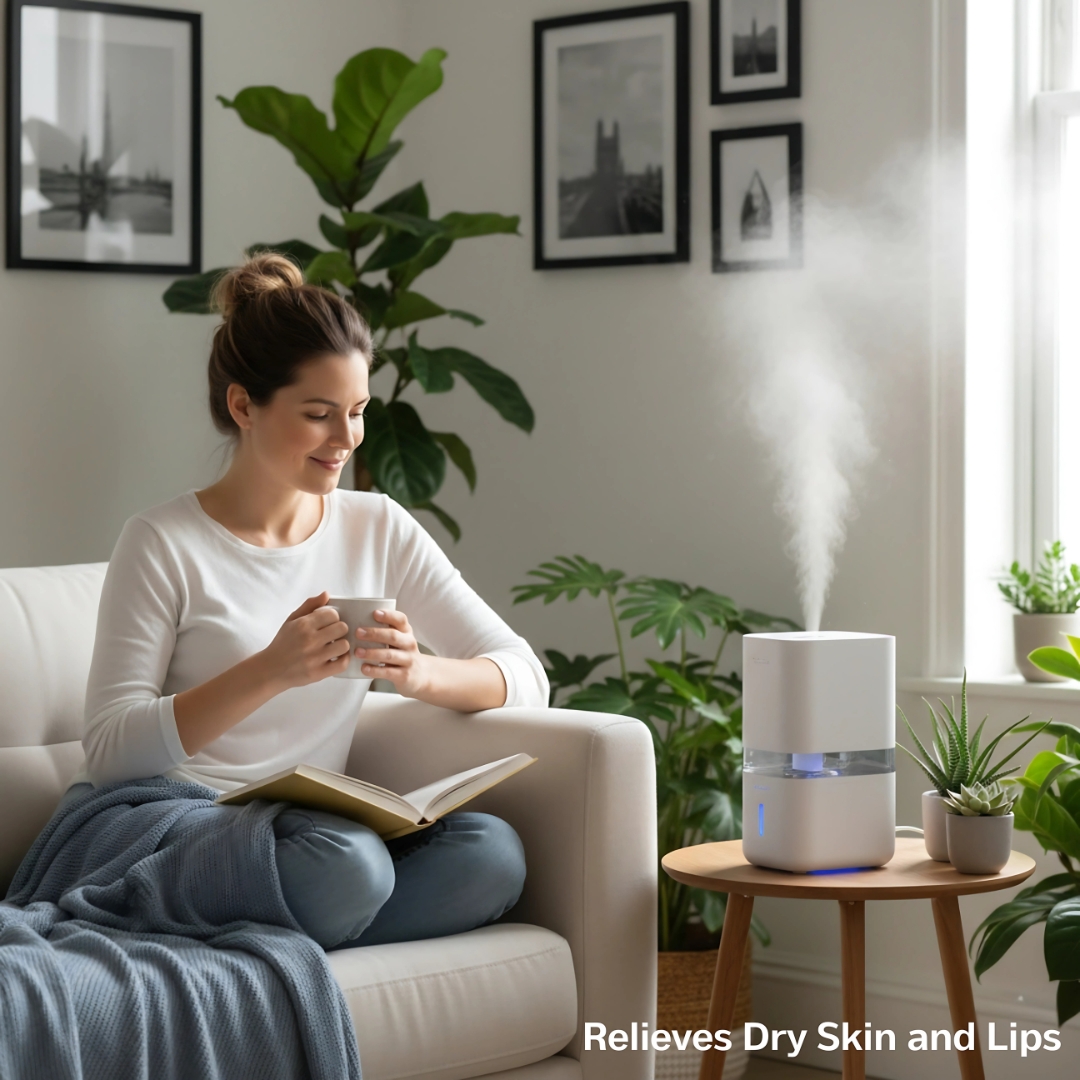
6.2. Dehumidifier for Dampness
A dehumidifier, however, reduces the air’s moisture levels. This is perfect for those who have humid air in the spaces where they’d like to use this type of wood floor. Dehumidifiers remove moisture from the air to stave off mold and allergies in a damp climate.
Air Purifier VS Humidifier: Which One Do You Need?
Even though an air cleaner (air purifier) and a humidifier both have the effect of improving air quality, they function in distinct ways. While an air purifier works to remove dust, pollen, smoke, and other airborne particles, a humidifier moistens the air by releasing moisture.
Whole Home Air Humidifier – Perfect for Big Homes. If you’re experiencing dry air throughout your entire home, a whole-home humidifier can be the better route. They are connected to your HVAC system and work to balance the humidity in your house. Special Circumstances: Infants and Voice Loss and Humidifiers
9.1. Humidifiers for Infants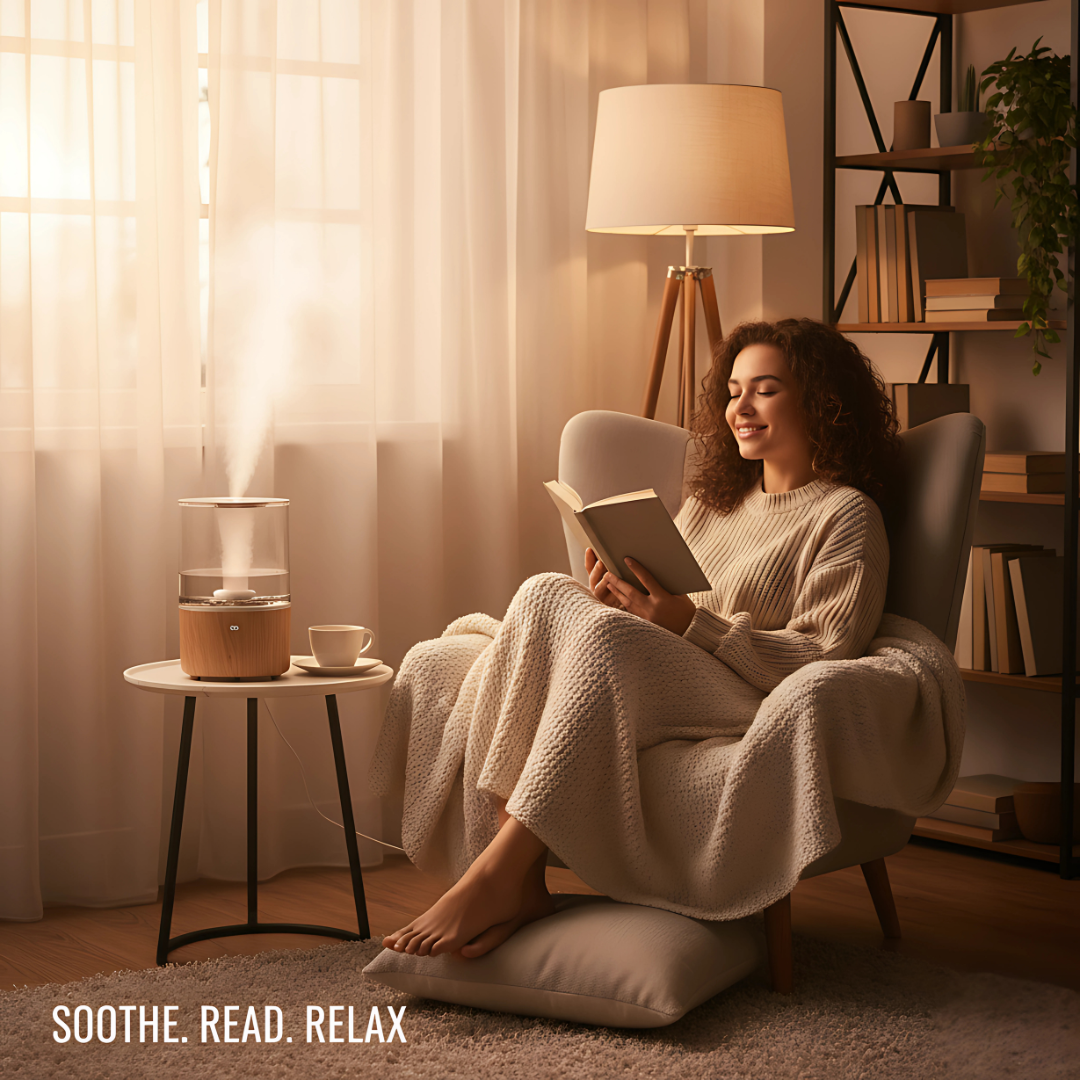
Humidifiers can also be a good idea for babies, but only when they have colds and are congested. A baby humidifier introduces healthy moisture to improve air quality in their nursery.
9.2. Humidifiers for Voice Loss
Humidifiers can also assist people who have voice loss from dry air. The extra moisture can hydrate the vocal cords and soothe hoarseness as well as improve overall vocal function.
Mini Humidifiers: Hybrid Ease on the Run
Mini humidifiers are also available for compact spaces or on-the-go use. Great for small rooms, offices, or on the go in a car!
FAQ
Q1: Why does a humidifier help with bloody noses?
A humidifier restores moisture to dry air, helping keep nasal passages hydrated. This reduces irritation, dryness, and the chance of nosebleeds, especially during winter or when indoor heating lowers humidity.
Q2: Can you put Vicks in a humidifier?
You can use Vicks in a humidifier only if it’s designed for essential oils or medicated inhalants. Always check the manufacturer’s instructions to avoid damaging the unit or affecting performance.
Q3: How frequently do I need to clean my humidifier?
Clean your humidifier at least once a week to prevent mold, bacteria, and mineral buildup. For daily use, rinse and empty the tank regularly to keep the air fresh and the device running efficiently.
Q4: Can I put tap water in my humidifier?
It’s more preferable to use distilled water for this reason, but also because minerals can accumulate in your humidifier and impact air quality.
Q5: What are the differences between a humidifier and a dehumidifier?
A humidifier adds moisture to dry air, helping with dryness and irritation, while a dehumidifier removes excess moisture from damp air, preventing mold, mildew, and musty odors in your home.
Q6: Do small room mini humidifiers work?
Yes, mini humidifiers work well in small rooms by adding light, portable moisture. They help ease dryness in the air, making them great for desks, bedrooms, travel, or personal use in compact spaces.
Q7: Can the use of a humidifier help relieve voice loss?
Yes, if you’re looking to hydrate the throat, a humidifier can help, and that in turn may decrease hoarseness and aid in getting your voice back.
Visit our Facebook

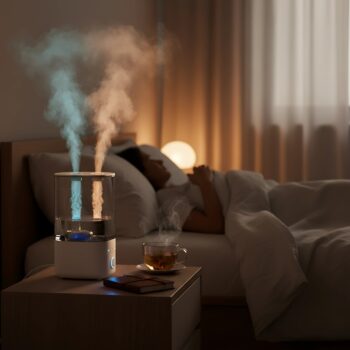
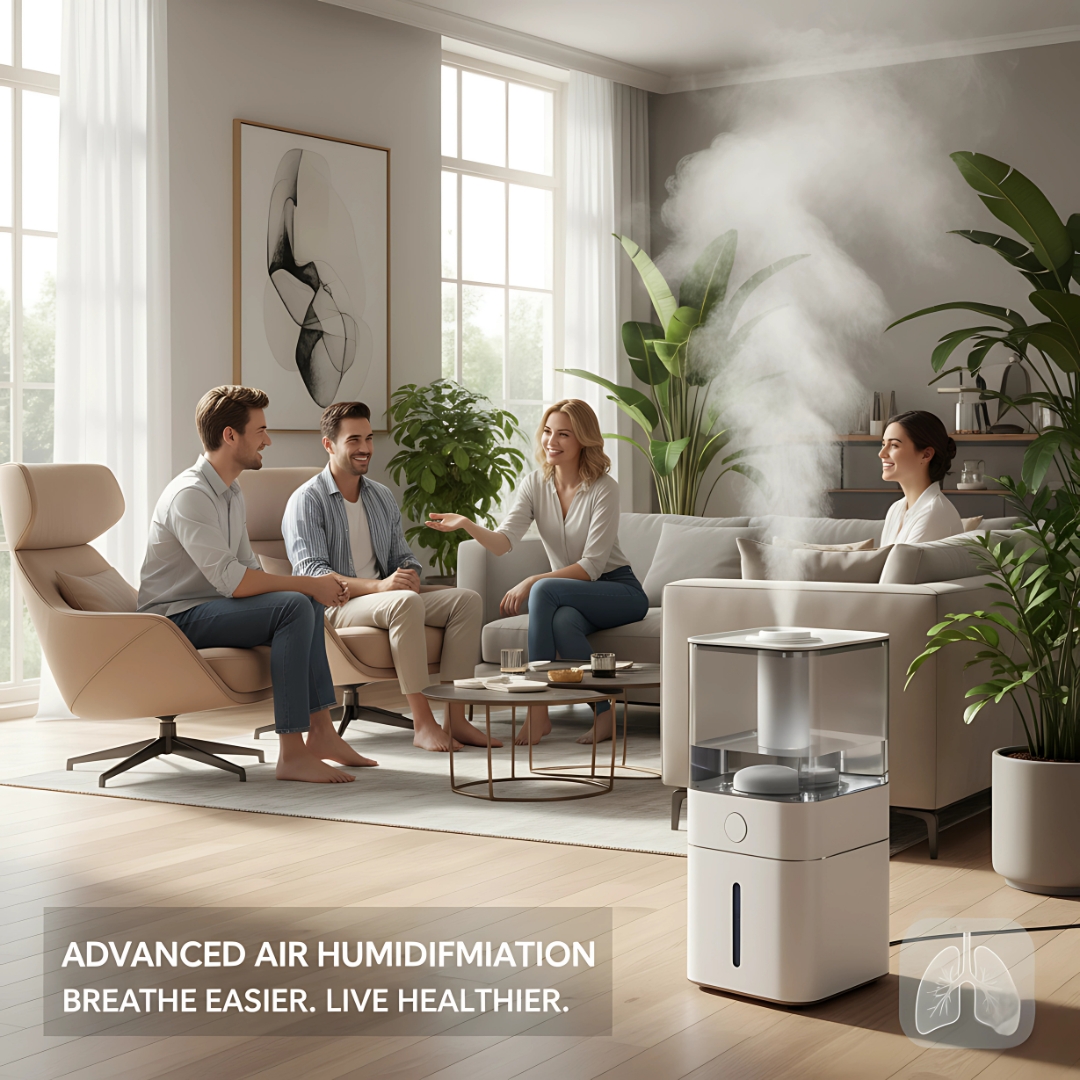
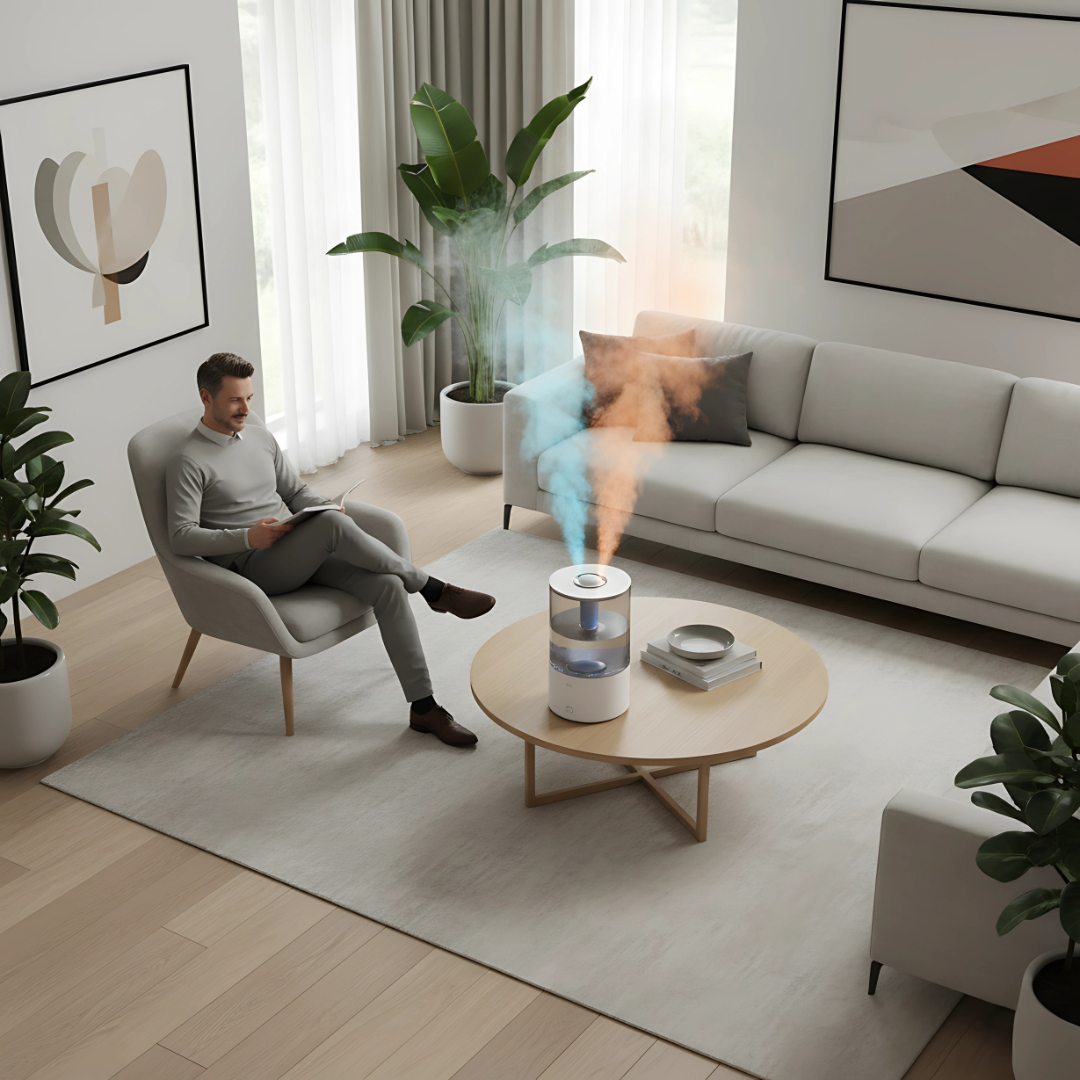
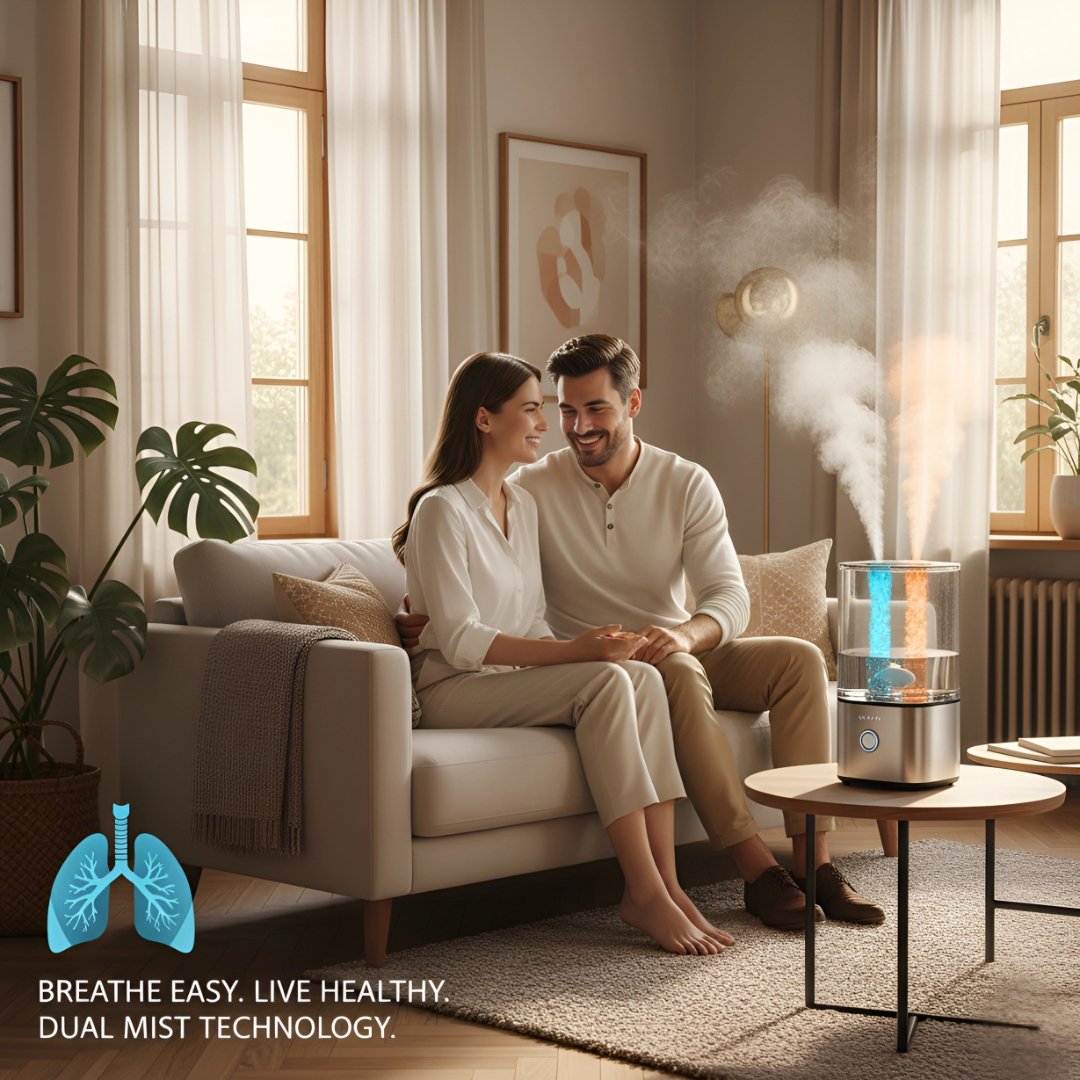


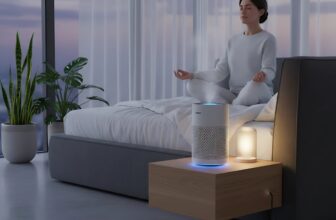
Clear, concise, and practical! I’m sharing this with my friends who just moved into a new house.
Amazing post! Learned a lot about balancing airflow and humidity — my home feels fresher already.
The way you connect comfort, energy, and health is impressive. Looking forward to more in-depth guides!
I’ve read many blogs, but this one feels genuine. Simple language, real advice, and actionable tips. Love it!
Air quality often gets ignored, but this site makes it feel essential. Thanks for spreading awareness.
Excellent explanations — made me realize how poor ventilation affects my sleep. Thanks for the reminder!
This content hits the sweet spot between detail and simplicity. Perfect for homeowners and renters alike!
Loved the energy-saving suggestions. These articles really help make homes more comfortable and efficient.
Your writing makes technical stuff feel so easy. I’ll definitely come back for more practical home tips.
Super helpful for people like me who struggle with indoor air dryness. The humidifier tips were spot-on!
I appreciate how balanced your reviews are, honest, helpful, and easy to apply for real home improvements.
Such a refreshing read! Finally, a guide that actually explains heating and cooling without too much jargon.
This is a great, well-researched post. I’ve always struggled with dry air in the winter and this perfectly explains why humidifiers are so effective at preventing bloody noses. Thanks for the helpful tips on the different types of humidifiers too!
The focus on energy efficiency is awesome. It’s nice to learn how to save money and breathe cleaner air.
I had no idea air filters played such a big role in keeping homes healthy. Your content really opened my eyes!
This article makes air system choices so much easier! Thank you for writing something clear and practical.
Very well-written and informative. I like how you covered both performance and health benefits together.
This post helped me understand how humidity impacts air freshness. Definitely getting a dehumidifier soon!
The other hand, a humidifier doesn’t clean the air; it simply adds moisture. This is especially helpful in dry conditions, such as during.
Love how simply you explained complex HVAC topics. Perfect for anyone trying to improve home comfort and air quality.
Excellent info! I never realized how much indoor air quality affects comfort and health. This breakdown was super easy to follow!
Really appreciate this content — now I know how to balance heating, cooling, and clean air without wasting energy.
Great read! The air purifier section gave me clarity on which model fits my small apartment best. Thanks for sharing!
These devices convert oxygen (O₂) in the air into ozone (O₃) through a process called corona discharge. An ozone generator for the house and car effectively neutralizes bacteria, viruses, mold, and odors by chemically breaking down pollutants. When ozone reacts with contaminants, it destroys their structure, leaving your space fresh and clean. Once the process is complete, the ozone safely reverts to regular oxygen (O₂), making the environment safe to re-enter